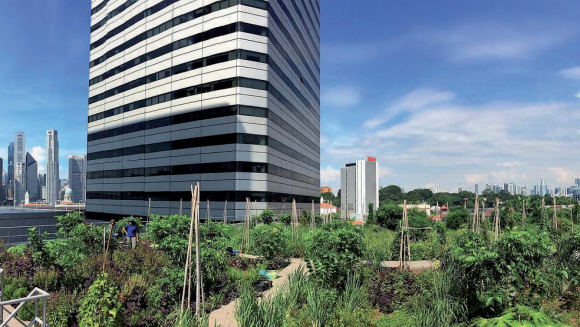
Unveiling the Future: Integrating Urban Farming into Real Estate
In a world where sustainable living is gaining prominence, the integration of urban farming into real estate is emerging as a groundbreaking trend. This transformative approach not only redefines the concept of urban spaces but also contributes to a more sustainable and resilient future. Let’s explore the key aspects and benefits of urban farming real estate integration.
Revitalizing Urban Spaces with Green Oases
Urban farming introduces lush greenery and productive spaces into the concrete jungles of urban environments. Rooftop gardens, vertical farms, and community plots seamlessly blend with real estate developments, transforming sterile spaces into vibrant and productive oases. This integration enhances the aesthetics of urban areas, providing residents with visually pleasing surroundings.
Enhancing Food Security and Local Produce
The integration of urban farming into real estate directly addresses concerns about food security. By cultivating local produce within city limits, communities reduce their reliance on distant agricultural sources. This proximity not only ensures fresher and more nutritious food but also contributes to a more resilient food supply chain, making urban areas more self-sufficient.
Creating Sustainable Development Practices
Urban farming real estate integration aligns with sustainable development goals. Developers and city planners are increasingly incorporating sustainable practices into their projects, and integrating farming spaces is a natural extension. This approach promotes resource efficiency, waste reduction, and a more circular economy, fostering responsible urban development.
Fostering Community Engagement and Well-Being
The inclusion of urban farming spaces encourages community engagement and a sense of well-being. Community gardens and shared farming initiatives provide residents with opportunities to connect, collaborate, and contribute to a shared goal. This social aspect of urban farming enhances the overall quality of life for residents, fostering a sense of community.
Green Infrastructure for Environmental Benefits
Urban farming contributes to the creation of green infrastructure within cities. This includes green roofs, living walls, and green spaces integrated into real estate projects. These features provide environmental benefits such as improved air quality, reduced heat island effect, and enhanced biodiversity, creating a more sustainable and resilient urban ecosystem.
Educational Opportunities for Sustainable Living
The integration of urban farming into real estate projects creates educational opportunities for residents. Learning about farming practices, sustainable living, and the benefits of locally sourced produce becomes an integral part of community life. Educational programs and workshops further empower residents to adopt more sustainable and eco-conscious lifestyles.
Economic Opportunities and Job Creation
Urban farming real estate integration opens avenues for economic opportunities and job creation. From farm management to local markets and agri-tourism, these initiatives generate employment within urban areas. This economic boost contributes to the overall prosperity of the community and reinforces the idea that urban spaces can be both productive and economically viable.
Addressing Environmental Challenges and Climate Resilience
Urban farming is a proactive response to environmental challenges and climate resilience. By integrating green spaces into real estate, cities become better equipped to manage extreme weather events, reduce urban heat, and mitigate climate-related risks. This adaptation strategy enhances the long-term resilience of urban areas.
Urban Farming Real Estate Integration Linking to WaslInfo.org
For a comprehensive exploration of urban farming real estate integration and its potential impact on sustainable urban living, visit WaslInfo.org. Discover insights, resources, and case studies that highlight the transformative possibilities of merging agriculture with real estate development.
Growing a Sustainable Future
In conclusion, the integration of urban farming into real estate represents a visionary approach to urban development. This symbiotic relationship between agriculture and urban living not only addresses pressing issues like food security and environmental challenges but also fosters a sense of community, well-being, and sustainability. As cities evolve, the integration of farming practices into urban spaces is a testament to the potential of harmonious coexistence between nature and urban development.
